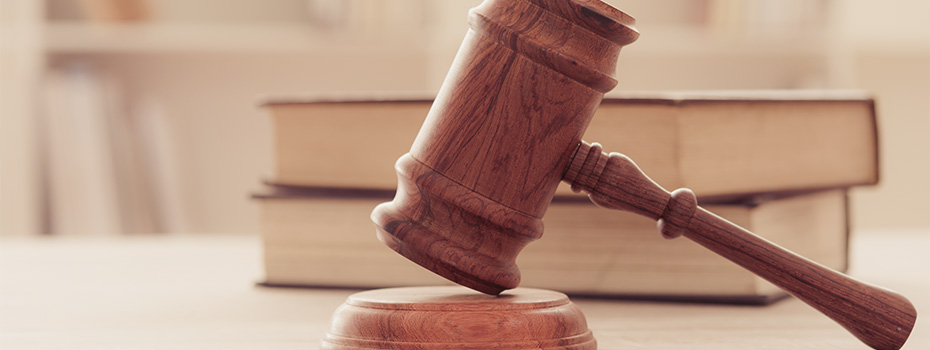What is The Rule of Law?
04 December 2017 00:00
Advancing the Rule of Law around the world is a concept that unifies our company across the globe and is passionately supported by the people of LexisNexis.
The Rule of Law, in its most basic form, is the principle that no person is above the law. The rule follows from the idea that truth, and therefore law, is based upon fundamental principles which can be discovered, but which cannot be created through an act of will.
The most important application of the Rule of Law is the principle that governmental authority is legitimately exercised only in accordance with written and publicly disclosed laws. These law are adopted and enforced in accordance with established procedural steps that are referred to as due process. The principle is intended to be a safeguard against arbitrary governance, whether by a totalitarian leader or by mob rule. Thus, the Rule of Law is hostile both to dictatorship and to anarchy.
LexisNexis is committed to playing a positive role in the community. This includes becoming an authoritative voice in "higher order" legal and risk management business issues. This includes becoming that are not only topical, but, more importantly, foundational to the stability of governments, the well-being of their citizens, and business. One example is our initiative regarding "the Rule of Law" and its role in preserving, protecting, and defending the rights and property of individuals and corporations around the world.
Advancing the rule of law around the world
Advancing the Rule of Law around the world is a concept that unifies our company across the globe and is passionately supported by the people of LexisNexis. Our efforts include:
- Providing products and services that enable customers to excel in the practice and business of law and help justice systems, governments and businesses to function more effectively, efficiently and transparently.
- Documenting local, international, national, and local laws, making them accessible in print and online to individuals and professionals in the public and private sectors.
- Partnering with governments and non-profit organisations to help make justice systems more efficient and transparent.
- Supporting corporate citizenship initiatives that strengthen civil society and the Rule of Law across the globe.
Transparency of the Legal System
There is no doubt of the importance of access to complete, accurate and up-to-date legislation and case law in the administration of justice. It has long been recognised that a transparent legal system is a fundamental necessity for the Rule of Law, and clarity of legislation and unimpeded access to the primary sources of law, legislation and case law, are essential. This, together with an independent judiciary to protect citizens against the arbitrary use of power, is the foundation of the Rule of Law.
Rule of Law cannot exist without a transparent legal system and the main components of such a system include a clear set of laws that are freely and easily accessible to all literate persons, strong enforcement structures, and an independent judiciary.
The creation of an effective and up to date legal referencing system for all English speaking African countries is one of LexisNexis South Africa’s core objectives. LexisNexis South Africa has established a specialist division which is dedicated to assist countries on the African subcontinent in finding solutions to improve the effectiveness of their legal systems, through the provision of reliable legal publications in printed as well as electronic format.
LexisNexis South Africa has worked throughout Africa to consolidate and update laws in Kenya, Swaziland, South Africa, Malawi, and Zimbabwe-fourteen nations in total. LexisNexis also has joined the Southern Africa Litigation Centre (SALC) in a joint initiative with the International Bar Association and Open Society of Southern Africa. The SALC trains attorneys, supports human rights cases, and carries out other programmes to advance the Rule of Law.
We also provide proper training for selected Government Officials in the updating and editing of the Laws of the relevant State as well as the use of electronic retrieval systems, if required. The training of these officials is at no additional cost. LexisNexis views this training as a critical component of any project promoting access to Justice.
Economic development & the Rule of Law
LexisNexis believes that robust economies are dependent upon the existence of:
- clear laws that govern societies and commerce;
- a strong, independent judiciary to impartially enforce laws; and
- contracts that allow citizens, institutions and foreign investors to risk capital and trust that risk is protected from arbitrary forces.
The Rule of Law enables people and institutions to fulfil their dreams and aspirations individually and collectively. LexisNexis promotes economic development and the Rule of Law in a variety of ways, including outreach and advocacy, educational forums, thought leadership, and the free dissemination of and training on LexisNexis® solutions.
In 2007 LexisNexis sponsored the first-ever Conference on Economic Development and the Rule of Law in Latin America. This ground-breaking two-day conference drew former presidents, ambassadors, leading justices, partners from the region’s most prestigious law firms, executives, and general counsel from top corporations across Latin America.
Citizens’ Free Access
Citizens’ Free Access is a new concept that is gradually being introduced globally. This concept makes the laws of a country easily accessible to every citizen. Previously public access to legislation has been largely restricted to internet searches or printed references. The Citizens' Free Access concept provides easy access to content such as gazettes and other resources hosted on the respective Government website.
 Lexis Nexis
Lexis Nexis
